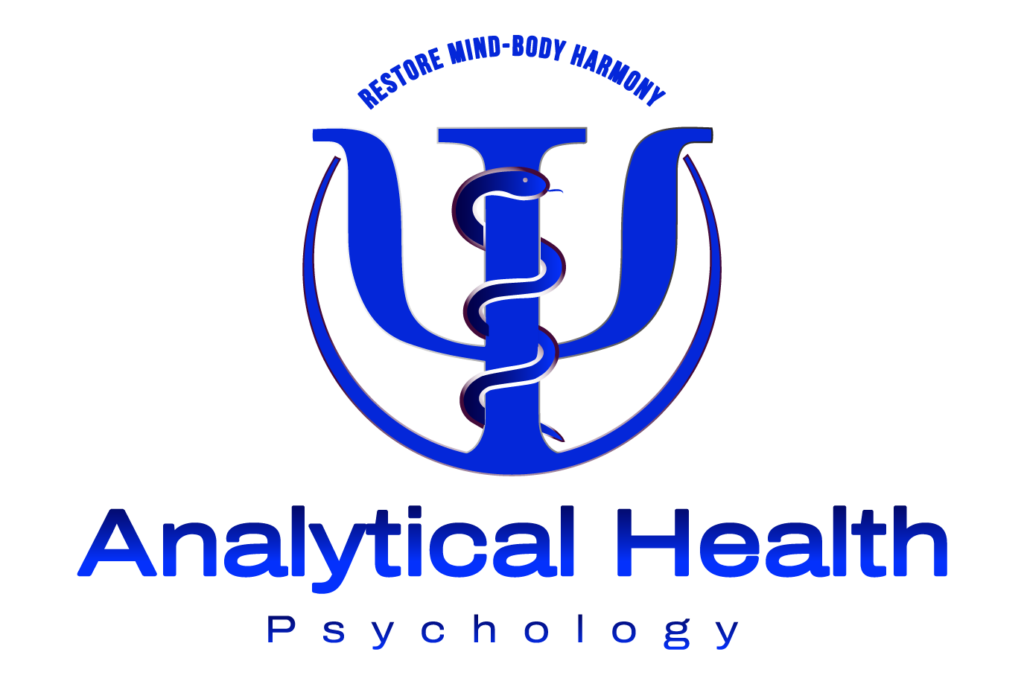Frequently Asked Question
Analytical Health Psychotherapy (AHP) is an integrated insight-oriented, psychodynamic, and psychoanalytic approach to Health Psychology developed by Clinical Health Psychologist Dr. Raymond Bradni. AHP clinicians focus on insight-oriented treatments of the mind-body (psychosomatic) disorders and help patients to restore their mind-body harmony.
Mind-body disorders, also known as psychosomatic disorders, happen when the body (Soma) acts as a container of mental (Psychic) stress. That is, the body (Soma) would contain the problematic and painful emotional experiences (e.g., anxiety, depression, guilt, etc.) and make them more concrete and tolerable. Before meeting with a health psychologist, individuals who suffer from psychosomatic disorders often meet with their physicians in different specialties (e.g., gastroenterologists, pain management clinicians, etc.) who cannot explain their physical symptoms with a medical explanation. Some examples of such disorders are disorders of Gut-Brain interaction (DGBI) like Irritable bowel syndrome (IBS), functional nausea, functional abdominal pain, eating disorders, trauma or stress-related weight gain, chronic pain, sleep-wake cycle dysregulation, etc.
AHP clinicians can effectively treat mind-body (psychosomatic) disorders that do not respond to short-term psychotherapies such as Cognitive Behavioral Therapy (CBT), solution-focused treatment, and other approaches that solely focus on symptom reduction. AHP treatment is contingent upon the patient’s physicians ruling out the medical causes for the physical symptoms.
Although short-term therapeutic strategies (e.g., CBT, DBT, PRT, etc.) might be effective for a short period, their positive effects may fade over time, and the individual might suffer from the same or other physical manifestations or forms of mind-body (psychosomatic) disorders. AHP explores the underpinning elements that caused the symptoms in the first place so the therapeutic gain would be long-lasting.
As an insight-oriented approach to Health psychology, AHP treatment will have two phases: Supportive and Analytical.
⦁ Supportive Phase:
In the supportive treatment phase, which lasts approximately 12-15 sessions, the clinician and the patient establish a therapeutic alliance, practice coping strategies to reduce the physical symptoms and explore how the mind and body interact. The primary goal of the supportive phase is symptom reduction, regaining daily functioning, and establishing a solid ground for the Analytical phase. At the end of the first phase, the clinician and patient would collaboratively decide to continue care to the analytical phase as needed.
⦁ Analytical Phase:
The primary goal of the analytical phase is to gain insight into the origins of emotional distress and inner conflicts that manifest in physical symptoms. The frequency and length of the treatment depend on several factors, including the intensity and complexity of the emotional challenges and inner conflicts, socio-cultural background, and the nature of the identified psychological complexes. Unlike the traditional psychoanalytic approach, the AHP clinician may meet once or twice weekly or less frequently with the patient while monitoring the mind-body harmony and modifying the therapeutic approach as needed. The AHP clinician and patient would decide about the termination of therapy collaboratively.
